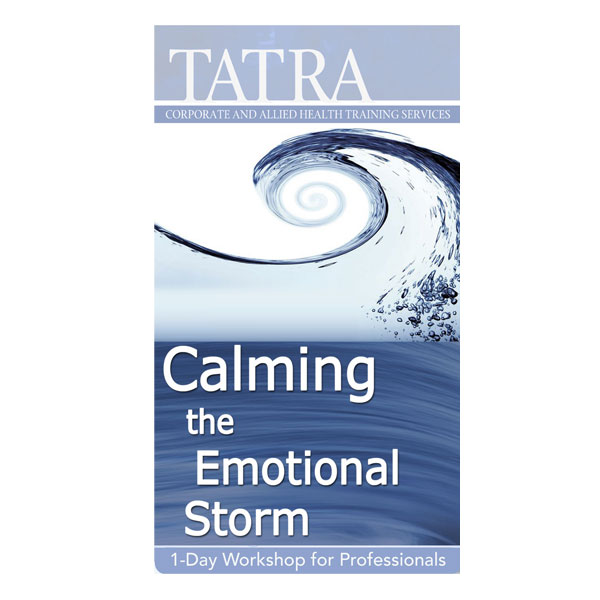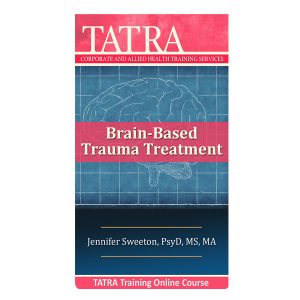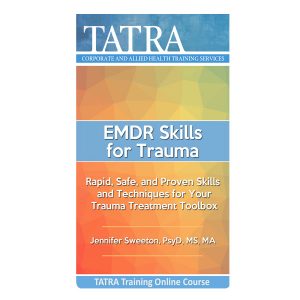Calming the Emotional Storm: Using Dialectical Behaviour Therapy to Treat Emotion Dysregulation Disorders in Youth and Adults

Sheri Van Dijk, MSW, RSW
This workshop will provide clinicians with real-life day-to-day tools you will be able to teach to clients struggling with mental health issues and other emotional and relational problems. You will be able to help your clients find order and peace in their lives again, and to make changes that are long-lasting!
Course Dates
Sydney: 13 March 2019, Wesley Conference Centre
Melbourne: 15 March 2019, Bayview on the Park
Adelaide: 18 March 2019, Next Gen Memorial Drive
Brisbane: 20 March 2019, Mantra on Queen
9:15am to 4:30pm
- Examine the connection between neuroplasticity and DBT skills
- Learn how practicing DBT skills helps to create lasting changes in the brain that help to regulate emotions
- A straightforward approach for anyone wanting to understand more about the use of DBT for adults and youth with problems managing emotions.
- Help your clients increase interpersonal harmony and intimacy in relationships, and to optimize their quality of life by creating lasting changes in their thoughts, behaviours, and ways of managing emotions.
- Practical strategies for youth and adult clients.
In this Calming the Emotional Storm workshop, Sheri Van Dijk will guide you through a set of techniques you will be able to use with your clients to help them cope with difficult emotions calmly and responsibly by using powerful skills from Dialectical Behaviour Therapy. By teaching your clients these skills, you can help them stop needless emotional suffering and develop the inner resilience that will help them to weather any emotional storm and respond to stressful situations with calm. The DBT approach offers suggestions on how to help clients to activate areas of their brain that have been under activated and how to quiet down those areas that have been over activated so that clients can enjoy life without being plagued by difficult emotions. In DBT, distress tolerance is promoted with parasympathetic activation and clients are asked to experience emotions like waves and ride through them.
You will learn how to help your clients:
- Establish a balanced life for an everyday sense of well-being
- Let go of unwanted worries and fears
- Become better at accepting yourself and others
- Work through a crisis without letting emotions take over
In this thorough and engaging workshop, Sheri Van Dijk breaks new ground by adapting DBT for people living with problems in managing emotions related to diagnoses and problems other than, but also including, Borderline Personality Disorder (BPD). Emotion Dysregulation is typically a component of mood and anxiety disorders, addictions, eating disorders, and BPD and other personality disorders; and can also appear in individuals without a specific diagnosis, but who are struggling with difficulties such as anger management problems, low self-esteem or shame, and complicated grief. This workshop will provide clinicians with real-life day-to-day tools you will be able to teach to clients struggling with mental health issues and other emotional and relational problems. You will be able to help your clients find order and peace in their lives again, and to make changes that are long-lasting!
DBT is a treatment originally designed to treat clients with BPD, but is increasingly being used to help clients with general problems in regulating emotions. Whether related to a mental illness or addiction, or simply to difficulties managing emotions, this inability to regulate oneself can lead to problems with anger, shame, relationships, and low self-esteem, resulting in chaos and misery.
In this one-day workshop, you will delve more deeply into some of the DBT skills, broadening your understanding of and ability to teach some of the most important skills to help clients manage emotions. Experiential exercises and video clips demonstrating real-life work with clients will help clinicians to increase their confidence in bringing DBT skills and strategies into their practice.
You will learn how you can assist your clients to integrate their current coping skills with new and effective DBT skills and techniques for living well with mood and anxiety disorders, eating disorders, and addictions, as well as with other problems such as managing anger, chronic shame, low self-esteem and grief.
These DBT skills will help your clients manage the emotional ups and downs and minimize the frequency and intensity of depressive and manic episodes or panic attacks. By using these techniques in conjunction with medication and professional care, your clients will soon experience relief from symptoms and come to enjoy the calm and confident feeling of being more in control.
- APS: Activities do not need to be endorsed by APS. Members can accrue 7 CPD hours by participating in this activity
- AASW: Members can accrue 7 CPD hours by participating in this activity
- ACA: Members can accrue 4 CPD points by participating in this activity
A certificate of attendance will be emailed to participants following the workshop.



 Brain-Based Trauma Treatment
Brain-Based Trauma Treatment
 EMDR Skills for Trauma: Rapid, Safe, and Proven Skills and Techniques for Your Trauma Treatment Toolbox
EMDR Skills for Trauma: Rapid, Safe, and Proven Skills and Techniques for Your Trauma Treatment Toolbox